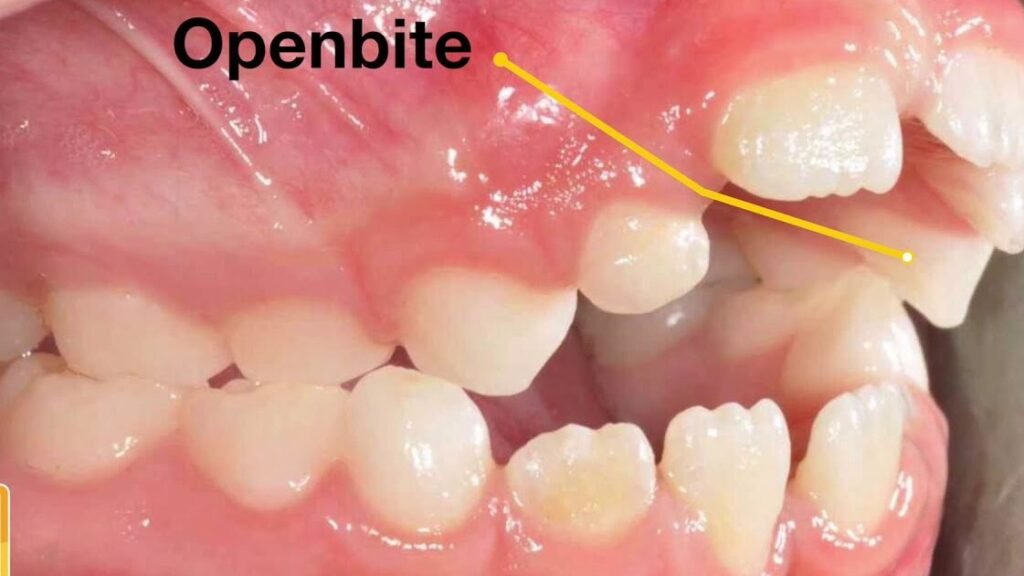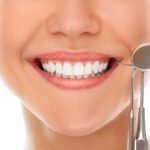Table of Contents
Potential Effects of Thumb-Sucking on Oral Health
Thumb-sucking is a common habit among young children that can have potential implications on their oral health. Persistent thumb-sucking puts pressure on the front teeth, leading to misalignment and potential issues with the development of the jaw structure. The continuous act of thumb-sucking can cause the upper teeth to protrude outward and the lower teeth to tilt inward, creating a malocclusion that may require orthodontic treatment to correct. Additionally, the pressure exerted by the thumb can affect the position of the tongue at rest, impacting speech development and oral functions.

In terms of oral health, prolonged thumb-sucking can also contribute to changes in the structure of the palate. The pressure from the thumb can lead to the narrowing of the upper arch, affecting the alignment of the teeth and the proper growth of the palate. This alteration in the palate’s shape can result in difficulties with chewing and swallowing, as well as potential issues with breathing patterns. Parents and caregivers play a crucial role in recognizing the effects of thumb-sucking on their child’s oral health and intervening at appropriate times to prevent long-term complications.
Impact of Thumb-Sucking on Tooth Alignment
Thumb-sucking can have a significant impact on tooth alignment, especially in young children whose teeth are still developing. The constant pressure and motion from sucking on the thumb can cause the teeth to shift out of their proper alignment over time. This misalignment can lead to issues such as overcrowding, gaps between teeth, and even changes in the bite pattern. In more severe cases, thumb-sucking may contribute to malocclusion, where the upper and lower teeth do not meet correctly when chewing or resting.
The effects of thumb-sucking on tooth alignment can be particularly noticeable in the front teeth, as they are usually the most affected by the sucking pressure. The habit can cause the front teeth to tip forward or flare outwards, creating an uneven appearance and potentially affecting the overall symmetry of the smile. Additionally, thumb-sucking can also influence the position of the tongue at rest, which may further exacerbate alignment issues in the teeth and impact proper speech development. It is essential for parents to be aware of these potential consequences and take proactive steps to help their child break the thumb-sucking habit to preserve their oral health and promote proper tooth alignment.
Potential Damage to the Palate from Thumb-Sucking

Thumb-sucking, a common soothing behavior in young children, can lead to potential damage to the palate if not addressed timely. Prolonged and vigorous thumb-sucking can exert pressure on the roof of the mouth, known as the palate, causing it to become arched or misshapen. This alteration in the palate’s structure may impact the positioning of the teeth and overall oral development.
The pressure exerted by the thumb on the palate can also affect the alignment of the upper teeth, leading to issues such as open bite or crossbite. The force from thumb-sucking can push the teeth outward, creating gaps or misalignments. Furthermore, the continuous presence of the thumb in the mouth can interfere with the normal growth and positioning of the teeth, potentially resulting in orthodontic problems that may require intervention later in childhood.
Behavioral Consequences of Thumb-Sucking
Thumb-sucking, while a common habit among young children, can have various behavioral consequences that extend beyond oral health concerns. Children who continue to suck their thumbs beyond the infant years may experience social stigma or teasing from peers, leading to potential feelings of embarrassment or low self-esteem. This behavior can also impact a child’s interactions with others, as constant thumb-sucking may interfere with effective communication and socialization skills.
Moreover, persistent thumb-sucking can result in negative behavioral patterns such as nail-biting or hair-twirling. These habits may serve as coping mechanisms for anxiety or stress, further complicating the child’s emotional well-being. As such, addressing thumb-sucking early on not only promotes better oral health but also contributes to positive behavioral development in children, fostering confidence and healthy coping strategies for overall well-being.
How Thumb-Sucking Can Affect Speech Development
Thumb-sucking can have a significant impact on a child’s speech development. Prolonged or vigorous thumb-sucking can lead to issues such as misalignment of the teeth or palate, which can in turn affect the proper formation of sounds during speech. When a child sucks their thumb, it alters the positioning of the tongue and mouth, potentially causing articulation difficulties and speech impediments. This can result in unclear speech, lisps, or difficulties pronouncing certain sounds, hindering the child’s ability to communicate effectively.

Furthermore, thumb-sucking can also affect the muscle tone and coordination in the oral cavity, crucial for precise speech production. The continuous pressure from the thumb on the palate can impact the development of the oral muscles involved in speech articulation. As a result, children who persist in thumb-sucking may experience delays in their speech development milestones, requiring speech therapy to correct any speech issues that may arise. It is essential for parents to be aware of the potential consequences of thumb-sucking on speech development and take proactive steps to address this habit early on to support their child’s oral and speech health.
Strategies to Help Your Child Stop Thumb-Sucking
When addressing thumb-sucking in children, it is essential to approach the issue with empathy and understanding. Encouraging your child to stop thumb-sucking can be a gradual process that involves positive reinforcement and gentle reminders. One effective strategy is to praise your child when they refrain from thumb-sucking, emphasizing the importance of breaking the habit for their oral health.
In addition to praise, offering alternative soothing techniques can aid in the transition away from thumb-sucking. Providing a special toy or blanket for comfort, particularly during times when your child may be more prone to thumb-sucking, can serve as a helpful distraction. It is crucial to avoid negative reinforcement or shaming tactics, as these can have adverse effects on your child’s emotional well-being. Instead, creating a supportive environment that focuses on encouragement and understanding is key to helping your child successfully stop thumb-sucking.
| Strategy | Description |
|---|---|
| Positive reinforcement | Praise your child when they refrain from thumb-sucking. Offer rewards or incentives for periods of time without thumb-sucking. |
| Distraction | Provide your child with alternative activities to keep their hands busy, such as playing with toys, drawing, or engaging in interactive games. |
| Encourage self-awareness | Help your child become aware of their thumb-sucking habit by gently pointing it out without being critical. Encourage them to notice when they start doing it. |
| Set achievable goals | Break the habit into smaller, manageable goals. Start with short periods without thumb-sucking and gradually increase the duration over time. |
| Address underlying issues | Identify and address any underlying emotional or psychological issues that may be causing your child to seek comfort through thumb-sucking. |
| Create a thumb-sucking deterrent | Use bitter-tasting nail polish or thumb guards to make thumb-sucking less enjoyable or appealing for your child. |
| Involve your child in decision-making | Discuss with your child the reasons why thumb-sucking is not ideal and involve them in coming up with solutions to help them stop the habit. |
| Seek professional help | If the habit persists despite your efforts, consider seeking guidance from a pediatrician, dentist, or therapist who can provide specialized advice and support. |
The Role of Pacifiers in Oral Health compared to Thumb-Sucking
Pacifiers and thumb-sucking are common soothing habits in infants and young children. While both behaviors serve a similar purpose, there are critical differences in their impact on oral health. Pacifiers, when used appropriately, are generally considered safer than thumb-sucking. Pacifiers come in various shapes and sizes, designed to mimic the natural shape of a mother’s nipple. They provide a more uniform pressure on the developing teeth and jaws compared to the localized pressure exerted by thumb-sucking. Moreover, pacifiers are easier to control and eventually wean off compared to the natural reflex of thumb-sucking.
However, prolonged pacifier use, especially beyond infancy, can also lead to dental issues such as alignment problems and malocclusion. Studies have shown that pacifier use beyond the age of three can impact the positioning of primary and permanent teeth. This highlights the importance of regulating pacifier use and transitioning children away from this habit at an appropriate age. Overall, while both pacifiers and thumb-sucking can have oral health implications, proper monitoring and intervention can help mitigate potential risks and support healthy dental development in children.
Long-Term Effects of Thumb-Sucking on Oral Health
Thumb-sucking, a common habit among young children, can have lasting effects on oral health if not addressed early on. One of the long-term consequences of persistent thumb-sucking is the potential misalignment of permanent teeth. The continuous pressure exerted by the thumb on the developing dental arch can lead to changes in the positioning of the teeth, resulting in malocclusion and other orthodontic issues. Studies have shown that children who suck their thumbs past the age of 5 are more likely to experience dental misalignments compared to those who cease the habit at an earlier age.
Moreover, long-term thumb-sucking can also impact the development of the jaw and the roof of the mouth, known as the palate. The pressure from the thumb can cause the upper jaw to narrow, leading to a high palate shape. This alteration in the natural growth of the oral structures can result in difficulties with breathing, swallowing, and proper speech development. In severe cases, prolonged thumb-sucking may even contribute to the formation of an open bite, where the front teeth do not come together when the back teeth are closed. Addressing thumb-sucking in its early stages is crucial to prevent these potential long-term effects on oral health.
When Should Parents Intervene to Stop Thumb-Sucking?
Parents should consider intervening to stop thumb-sucking when it continues beyond the age of 4 or 5. At this stage, prolonged thumb-sucking can start to affect the alignment of the teeth and the development of the jaw. It is crucial to address this habit early on to prevent potential dental issues in the future. Additionally, if the child is experiencing peer pressure or negative social interactions due to thumb-sucking, it may be a sign that intervention is necessary to support their social well-being.
| Age of Child | Signs of Intervention |
|---|---|
| 0-6 months | None |
| 6-12 months | None |
| 1-2 years | Consider intervention if thumb-sucking is excessive and interfering with speech development or causing dental issues. |
| 2-4 years | May need intervention if thumb-sucking persists and starts affecting teeth alignment or causes social stigma. |
| 4+ years | Intervention is recommended to prevent dental problems and address any emotional dependency on thumb-sucking. |
Another aspect to consider is the impact of thumb-sucking on speech development. If parents notice any speech impediments or delays in their child’s speech, it may be a signal to address the thumb-sucking habit. Early intervention can help prevent further complications and support the child in developing proper speech patterns. By addressing thumb-sucking promptly when these signs are observed, parents can actively contribute to their child’s overall oral health and well-being.
Tips for Addressing Thumb-Sucking with Young Children
Encouraging your child to stop thumb-sucking at a young age can help prevent potential dental issues in the future. One effective tip is to praise your child when they avoid thumb-sucking, as positive reinforcement can be a powerful motivator. Additionally, creating a reward system for successful periods of not thumb-sucking can incentivize your child to break the habit gradually.
Another useful tip is to identify triggers that lead to thumb-sucking behavior and address them accordingly. For example, if your child resorts to thumb-sucking when feeling anxious or bored, finding alternative coping mechanisms like stress balls or engaging activities can help redirect their behavior. It’s important to remain patient and understanding throughout this process, as breaking a habit takes time and consistency.
Consulting with a Pediatric Dentist about Thumb-Sucking Concerns
When parents observe persistent thumb-sucking habits in their children, seeking advice from a pediatric dentist is crucial in addressing this issue effectively. Pediatric dentists specialize in the oral health of young individuals and can provide valuable insights and strategies tailored to each child’s unique needs. Through a comprehensive assessment, a pediatric dentist can evaluate the potential impact of thumb-sucking on a child’s dental and oral development, offering guidance on the most suitable interventions to promote healthy habits.
Consulting with a pediatric dentist about thumb-sucking concerns enables parents to gain a deeper understanding of the behavioral and physiological implications of this habit. By discussing the frequency, duration, and intensity of thumb-sucking, parents can work collaboratively with the pediatric dentist to implement personalized strategies aimed at reducing or eliminating this habit. With expert guidance and support, parents can navigate the complex factors influencing thumb-sucking behavior and set achievable goals to promote optimal oral health and overall well-being in their children.
How Thumb-Sucking Can Impact Permanent Teeth
Thumb-sucking can have a significant impact on the permanent teeth of a child if the habit persists over a prolonged period. The constant pressure and positioning of the thumb against the developing teeth can lead to misalignment, commonly referred to as malocclusion. This misalignment can result in issues such as overbites, underbites, or crossbites, which may require orthodontic intervention to correct. Additionally, the pressure exerted by the thumb can affect the positioning and eruption of permanent teeth, leading to irregular spacing and alignment issues that can impact the overall oral health of the child.
The continuous presence of the thumb in the mouth during thumb-sucking can also cause changes to the natural shape of the palate, which may influence the proper growth and alignment of the permanent teeth. The pressure from the thumb can alter the normal development of the palate, potentially resulting in a high arched palate or a narrow dental arch. These structural changes can further exacerbate issues with tooth alignment and overall oral health, highlighting the importance of addressing thumb-sucking habits in children at an early stage to prevent long-term consequences on the permanent teeth.
The Relationship Between Thumb-Sucking and Bruxism
Bruxism, the habitual grinding or clenching of teeth, is a common dental concern among children. In some cases, there is a direct correlation between thumb-sucking and bruxism. Children who suck their thumbs excessively may develop bruxism as a result of the constant pressure on their teeth and jaws. This persistent habit can lead to wear and tear on the teeth, causing them to become sensitive and vulnerable to damage over time. Moreover, the repetitive motion of thumb-sucking can contribute to the development of bruxism patterns during sleep, exacerbating the condition further.
It is essential for parents to be vigilant in monitoring their child’s thumb-sucking behavior and its potential link to bruxism. Addressing thumb-sucking early on can help prevent the progression of bruxism and its associated complications. Educating children on the negative effects of thumb-sucking and implementing strategies to curb this habit can go a long way in safeguarding their oral health and preventing bruxism-related issues in the future. By taking proactive measures and seeking guidance from a pediatric dentist, parents can effectively intervene to mitigate the risks posed by the relationship between thumb-sucking and bruxism.
Addressing Peer Pressure and Thumb-Sucking
Peer pressure can play a significant role in perpetuating thumb-sucking behaviors among children. When a child observes their peers no longer engaging in thumb-sucking, they may feel pressured to stop as well. However, it is crucial for parents and caregivers to approach this delicate issue with empathy and understanding. Pressuring a child to stop thumb-sucking due to peer influence alone may lead to increased stress and anxiety, potentially exacerbating the habit.
In addressing peer pressure related to thumb-sucking, it is essential to create a supportive environment for the child. Open communication and positive reinforcement are key strategies in helping a child navigate social dynamics while working to abandon the habit. Encouraging peer acceptance and understanding, coupled with praise and rewards for progress made in stopping thumb-sucking, can empower the child to make positive changes for their oral health and overall well-being.
The Psychological Impact of Thumb-Sucking on Children
Thumb-sucking is a common habit observed in children, and its psychological impact should not be underestimated. Children may resort to thumb-sucking as a coping mechanism in times of stress, anxiety, or when seeking comfort. This can lead to a sense of security and reassurance for the child, making it challenging to voluntarily give up the habit. As children grow older, persistent thumb-sucking can potentially result in feelings of embarrassment or shame, especially if they are teased or criticized by their peers or adults.
Moreover, the psychological impact of thumb-sucking on children can extend to their self-esteem and social interactions. Children who continue to suck their thumbs beyond the recommended age may face negative comments or judgment from others, which could affect their self-confidence. These children may be hesitant to participate in social activities or may withdraw from social interactions to avoid scrutiny related to their thumb-sucking habit. It is crucial for parents and caregivers to be sensitive to the emotional well-being of children who engage in thumb-sucking and provide support and encouragement in breaking this habit.
Can thumb-sucking lead to long-term psychological effects on children?
While thumb-sucking itself may not directly cause psychological issues, the social stigma or teasing from peers about thumb-sucking can impact a child’s self-esteem and confidence.
How can parents address peer pressure related to thumb-sucking?
Parents can educate their child about thumb-sucking and help them understand that it is a common habit among young children. Encouraging open communication and providing emotional support can help a child deal with peer pressure.
Is there a connection between thumb-sucking and bruxism (teeth grinding)?
Yes, prolonged thumb-sucking can lead to misalignment of the teeth and jaw, which may contribute to bruxism. It is important to address thumb-sucking early on to prevent potential dental issues.
When should parents intervene to help their child stop thumb-sucking?
Parents should consider intervening if thumb-sucking persists beyond the age of 4 or if it is causing harm to the child’s oral health. Consulting with a pediatric dentist can provide guidance on the best approach for addressing thumb-sucking.
How can thumb-sucking impact a child’s speech development?
Thumb-sucking can affect the alignment of the teeth and palate, which may impact a child’s ability to pronounce certain sounds correctly. Addressing thumb-sucking early on can help prevent speech development issues.




